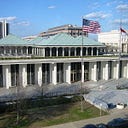Senate Passes Updated Gym, Bar, Restaurant Bill that Provides Gov With Fail-Safe
Changes address all complaints from Gov, Dems
Gov could re-close bars, gyms with concurrence from Council of State, which has been a feature of emergency authority powers for decades
Raleigh, N.C. — The North Carolina Senate today voted to pass an updated bill to reopen gyms and to treat bars and restaurants equally. The legislation passed by a 36–13 margin.
The updated measure provides Gov. Roy Cooper with flexibility to re-close those businesses, the absence of which Gov. Cooper and Democrats cited as their reason for opposing the original bill. Under the updated bill, the Governor could institute statewide closures if he obtains Council of State concurrence, and local health directors could institute orders in their counties on their own authority.
Every state that borders North Carolina has already reopened gyms, bars, and restaurants.
Over the last two weeks, thousands of people gathered in the streets, many of them without wearing masks or following social distancing rules. They walked, ran, and shouted. Gov. Cooper supported them and even marched with them, so it’s clear that the “science” behind the lockdowns is not being applied consistently.
Sen. Gunn said, “I’m tired of wasting time while these businesses flounder. This bill addresses the Governor’s complaint about flexibility. Let’s get these business open.”
On Friday afternoon, Gov. Roy Cooper vetoed House Bill 536, which would have treated restaurants and bars equally by allowing both to operate on their property outdoors. That bill is supported by science, which shows the risk of viral transmission is greatly diminished outdoors, and has been embraced by dozens of other states.
Democrats and the Governor opposed the bill because they complained the Governor would not have the flexibility to close down bars in the event of a future COVID-19 spike.
Sen. Gunn’s changes to his bill address those concerns. The updated bill makes it explicit that the Governor may re-close businesses provided he obtains concurrence from the Council of State — a basic check that has existed in emergency authority statute for decades.
Background on Council of State Concurrence
The emergency authority provided to the executive branch in statute has for decades included a requirement for the Governor to obtain Council of State concurrence on certain actions, including shuttering businesses around the state.
It’s clear that the Governor acknowledges that fact — he has sought Council of State concurrence on many of his executive orders. He changed that practice for controversial orders after he sought, but failed to obtain, Council of State concurrence for his broad lockdown order in March.
The emergency authority statute clearly intends the Governor to obtain Council of State concurrence on orders affecting businesses statewide. The loopholes the Governor has found need to be addressed, but cleaning up emergency authorities in the midst of the emergency would be a fraught and likely unsuccessful task.
The spirit of requiring Council of State concurrence in this bill is the notion that one person should not have unilateral, unchecked power to close every establishment in all 100 counties without at least a basic check on that power.
Science, Facts, and Data
In Tennessee, gyms, restaurants, and bars have been open for a month. Is the science and data different across that border?
In Virginia, bars, restaurants, and gyms are open. Is the science and data different across that border?
In South Carolina, gyms, bars, and restaurants are all open. Is the science and data different across that border?
In Georgia, gyms, bars, and restaurants are all open. Is the science and data different across that border?
